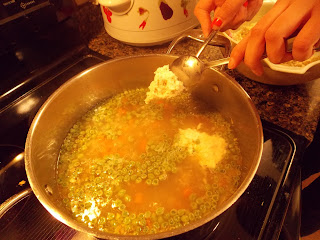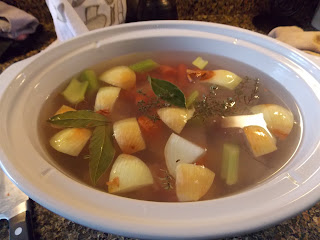Squire Jack and the Parson.
A SHORT STORY IN TWO PARTS.
CHAPTER I.
Not that Squire Jack was engaged in poultry business,
any more than the other members of Hickorytown
Church. His neighbors, like all good people in country
villages, kept chickens, turkeys and geese, and so did he of course. Nor was Squire Jack peculiar in keeping a flock
of moral fowls; for all his neighbors, like all other mortals, did the same. What Squire Jack was especially noted for was,
that in his flock of moral fowls, which all his lifelong had gained their
lifehood by scratching among his neighbors' faults and failings, there was one
bird, a noble, high-stepping, long-spurred cock, which, singular to relate,
while he let other people's gardens alone, could scratch up the parson's early
peas more perseveringly and effectually than any other cock in the country.
The Hickorytown
Church was, as the
English would say, " a poor living;" whether because the people were
poor, or because they were close fisted, matters not here to relate. But so it was, that pastors were often
changed. And when a new parson had
settled in the place, to see Squire Jack's famous long tailed game cock walk
over into the parson's yard, and tear up his early peas, and scratch up his
garden and make it look like the abomination of desolation, and cry
cook-a-doodle-do over it all, was a sight to make all Hickorytown shake its
sides with laughter. Squire Jack's bird
was a famous fowl indeed; but he came home to roost one night in a plight so
sad, and bedraggled, and so belittled in his own eyes and estimation withal,
that he was never thereafter, to his dying day, known to mount a fence and
crow. How and by what means this sad
misadventure befell the poor cock, we shall tell, firstly, how Squire Jack's
chickens tore up the parson's peas; and, secondly, how Squire Jack's chickens
came home to roost.
Squire Jack had a hobby, as who has not? and he rode
it hard, as who had a better right? But
alas! one day his horse, or as, in another figure, we termed it, his game cock,
was this, to wit; Squire Jack read his Bible; and there were one or two
chapters which had a peculiar fascination for him. These were the tenth of St. Matthew and the
tenth of St. Luke. Of reading and
expounding these, especially in the presence of a new parson, he never wearied,
as indeed he was never defeated in his forcible exposition of them. A self-made theologian was Squire Jack, and
great indeed was he in the department of Exegesis; especially in so far as it
concerned our Lord's instructions to the apostles as to the manner in which
they should go forth into the world, and the means by which they should be
supported. He was "dead sot agin
preachers hevin' a selary. Let 'em work
like Paul did, earn their own livin'." Some ten years back the Hickorytown Church had
been about to buy a parsonage, but Squire Jack threw the whole meeting into
helpless confusion by a powerful speech, in which he challenged any man in
Hickorytown to give the Scriptural authority, chapter and verse, "fer
preachers hevin' personages. He'd like
to know whether Peter ever had a personage?" The "personage" was never got.
"No, my friends"—thus would he, time and
again, begin his harangue in the village store of winter nights, and in none
the lower tone because the parson was by —"No, my friends, I ain't agin
the preachers. Preachers are all good
enough in their place. What I am agin,
is this thing of preachers gettin' personages an' wearin, shiny black coats;
an' hevin' white hands like a woman, an' gettin' from four to six hundred
dollars a year. I'd like jest once in my
life to see the Scripture authority fer that. Did Paul hev a personage? Did Peter hev a shiny black coat? Did Thomas or Philip or any of the rest of em
ever hev any selary? No sir! they hed
nothin' an' the Lord told'em they shouldn't take nothin', not two coats, nor a
purse of money, nothin' at all, but may be a staff. That's the way they was to go out, with their
lives in their hands, an' trust in the Lord to keep 'em. An' now what I want to know, an' what I've
been askin' every preacher we've hed here in Hickorytown for the last twenty
year—an' we've hed here right smart lot of 'em in that time—is this; is preachers
now-a-day better'n the apostles was?"
It was a telling speech. It was a knock-down argument. It scratched up the parson's peas most
effectually, and crowed cook-a-doodle-do over the whole forlorn garden. Many was the tilt Squire Jack run with the
preachers, and always with the same result—the parson was invariably unhorsed
and ingloriously defeated and put to shame in the eyes of all Hickorytown. In vain did the preacher argue that these
instructions to the apostle could not reasonably be applied to their
successors, nor were necessarily intended to be applied, on the ground that
times and circumstances had so greatly changed since the apostolic period, that
it would plainly be impossible to adhere to the strict letter of the text. Squire Jack was proof against the historical
argument, and would none of their refined theological lore; he was a plain man,
and could understand plain words, and there it was in the Bible, in black and
white, and as plain as the nose on your face, and you couldn't and shouldn't
get out of it, twist how you might. "Was preachers now a-days better'n the
apostles was?"—that's what he'd like to know! Thus it chanced that, for full twenty years
past, Squire Jack's famous game cock had been scratching up a large succession
of the parson's peas, with no man to clip his comb or cut his spurs for him.
CHAPTER
II.
It
happened about this time, that there moved into Hickorytown, a new pastor of
the Hickorytown church—the Rev. Solomon Sly; a quiet unobtrusive kind of man
with nothing remarkable about him but his poverty, and a queer kind of merry
twinkle in the corner of each eye. With
wife and three children he moved into —not the parsonage, for Squire Jack had
set his foot on that—but into the last house on the village street, which was
to be had at a low rent, partly because it was in a dreary and unhealthy
locality, a common being on one side of it, and a duck pond on the other; and
partly because it was commonly reported to be the favorite resort of
"spooks." Here the Rev. Solomon
and family lived, or tried to live. They
all came very near dying of fevers before all was over; and though they saw no
ghosts, they got much ghostly advice and counsel during their afflictions, and
from no one more than from Squire Jack himself. So that it was no wonder that after a year's
residence, the Rev. Solomon determined to seek another field, nor need any
reasonable person be told with what gratitude he discovered that another field
was awaiting him.
But before making his purpose of leaving known to the
people, Squire Jack's chicken, the famous high-stepping, long-spurred game
cock, came over one day, as he often had done before, to scratch up the Rev.
Solomon's peas. It was in the village
store, the scene of many a victory for Squire Jack, that the Rev. Solomon was
again assailed by the usual exegetical battery, winding up with the usual
coupe-de grace— "now what I'd like to know is, is preachers now-a-days
better'n the apostles was?"
The Rev. Solomon said he did not think they were;
acknowledged there was great force and much truth in what the Squire had said.
It was—he confessed it with shame—a subject he had never thought much about
before coming to Hickorytown, and which he had never certainly seen in this
strong light before meeting with his good friend Squire Jack. He promised the good company to examine the
subject carefully and prayerfully, and let them know the result, if at all
possible, in some way or other. Whereat
they were all right well pleased.
A few days thereafter, all early in the morning,
while Squire Jack was yet lingering over his pipe in the kitchen, there was a
loud, sharp rap at the front door: on
opening which, the Squire beheld standing on the porch the Rev. Solomon Sly
with his wife and three children. Before
the Squire could say "good morning," and without, indeed, waiting for
any invitation to enter, the Rev. Solomon, reverently uncovering his head,
said, in grave and impressive voice—"Peace be unto this house?"—and
walked in, followed by wife and children. Now, although the Squire could not help but
notice something unusual in the manner of his reverend guest, a strange
self-confident air, as it were, amounting almost to boldness, yet still he
regarded this visit of the reverend family as only a matter of usual
occurrence, a pastoral visit, as it were, on a large scale. And such, indeed, it eventually turned out to
be. Only, before all was over, the whole
occurrence presented itself to the mind of the Squire rather in the light of a
pastoral visitation than of a pastoral visit for the Rev. Solomon and family
had evidently come to spend the day.
The morning was spent in pleasant conversation by the
old folks, while the children played and romped upon the lawn. Dinner came, and a right royal dinner it was,
to be sure; for the good Squire, however he might praise fasting as a pious
practice befitting the successors of the apostles, never once thought of numbering
himself among the herb-eating, weaker brethren, but believed in good beef as
profoundly as the best Englishman that ever carved a roast. After dinner, the Rev. Solomon, excusing
himself on the plea of pastoral work to be done in the parish, left wife and
children to the care of Squire Jack and family, remarking as he put on his hat
in the hall, that he would be back to sea at five o'clock. After tea, they stayed, and stayed, and
stayed, until it became seriously evident that the whole parson's family had
come to spend not only the day but also the night! Such, indeed, was the solemn and unavoidable
truth. They did spend the night, and a
right comfortable night it was, to be sure, under the roof of Squire Jack's
commodious mansion. Prayers and
breakfast over the next morning, the Rev. Solomon asked to be shown to some
quiet room, some "prophet's chamber," where he might devote the
morning hours to meditation, prayer and study. "To be sure," said he, "I have
no books or library with me; nor, indeed, do I need any. None of the apostles had a library, nothing
in fact but a Bible, if even so much as that; and after due consideration, I
have arrived at your conclusion, Squire Jack, that preachers now-a-days are not
a whit better than the apostles were; and it is now my fixed and settled
purpose to follow their example to the very last letter." With which words the Rev. Solomon ascended; with
slow and solemn tread, to the upper chamber of the prophet.
Squire Jack was
too thick-skinned intellectually to see the full drift of all this at once; and
it was not until two, three, four, five days of pastoral visitation of this
sort had elapsed that he began to suspect, as he remarked to Mrs. Jack,
"that this pastor of our'n hasn't got his name Sly. for nothin'!" and
so, wondering what all this strange procedure might mean, and when it was all going to end, and spirited
paternal debatings with himself to say nothing of frequent scoldings when alone
with his wife, he determined at last to seek an interview, and ask an
explanation from the Rev. Solomon himself.
Which, accordingly, came off on the front porch; on
the morning of the sixth day; when and where, after many ineffectual hints, the
worthy Squire managed after much clearing of the throat, to ask in plain
English how long the Rev. Solomon and family were going to tarry at his
house? To which inquiry the Rev. Solomon
replied with a merry twinkle of the eye, which he could not for the soul of him
repress, that he purposed to abide under the shelter of good Squire Jack's
mansion until he took his journey hence—in short, so long as he remained pastor
of the Hickorytown Church. "What! hev ye giv' up livin' in the
parsonage?" said Squire Jack. Yes;
the Rev. Solomon had given up the parsonage, and never would occupy it again,
for he intended to adhere rigidly to the practice of the apostles, "none
of whom, you know," said he, "ever had a parsonage." At which, when Squire Jack expressed his
wonder, and asked whether his salary was not sufficient to enable him to! live without
going around in this way, the parson interrupted him, with "Salary, Sir! I have given up my salary and shall never
receive another cent from the Hickorytown
Church, as it is my
solemn purpose to inform all the people in open meeting tomorrow (Sabbath)
morning. For none of the apostles ever
had any salary, and ministers now-a-days are not one whit better than the
apostles were. If they had no parsonage
then I will have none. If they had no salary,
then I will have none. I am about to
sell off all my little household furniture; have already given away the coats I
have, except the one on my back, and I mean, so long as I remain in
Hickorytown, to do precisely as the apostles did."
"Well," said the Squire, "to be sure,
that was all right. But if he was going
to boardin' round, he would see Deacon Smith and neighbor Boggs whether they
wouldn't keep 'em a week or so." "Alas! good Squire," said Parson
Sly, "I am positively forbidden to do anything of the sort, much as I
desire it. For on this point my
instructions are very positive and plain. I am not to go from house to house. 'Into
whatsoever city or town ye enter, inquire who in it is worthy, and there abide
till ye go thence. That is Matthew. And Luke says, in the same house remain,
eating and drinking such things as they give * * * go not from house to house.'
I should greatly indeed desire to
relieve you of your burden of keeping me and mine by having others share the
burden equally with yourself; but my instructions on this point are clear;
their sense is plain; board around I cannot; here under your ample and hospitable
roof I must remain till I go hence."
What was to be said or done! Turn the parson out of doors he could not and
dare not, lest he shake the dust off his feet for a testimony against him. There was nothing for it; he was caught in his
exegetical trap, and twist how he might, and grit his teeth as he would, he
could not escape. He had found a
practical, and quite uncomfortable application of his own doctrine which he had
preached for twenty years past, that "Preachers now-a-days wasn't a bit better'n
the apostles was." His chickens had
come home to roost.
The next day the Rev. Solomon resigned,- and shortly
left Hickorytown for good and all. People
often wondered, but never quite discovered why Squire Jack never again preached
in the village store from his favorite text that "he'd like to know
whether preachers now-a-days was better'n the apostles was?"
CONCLUSION AND MORAL.
Firstly:—Exegesis
is an edged tool, sometimes very sharp, and often cutting both ways.
Secondly:—Never keep a flock
of moral fowls to scratch up the parson's peas, lest,
Thirdly:-—They
might come home to roost.


































